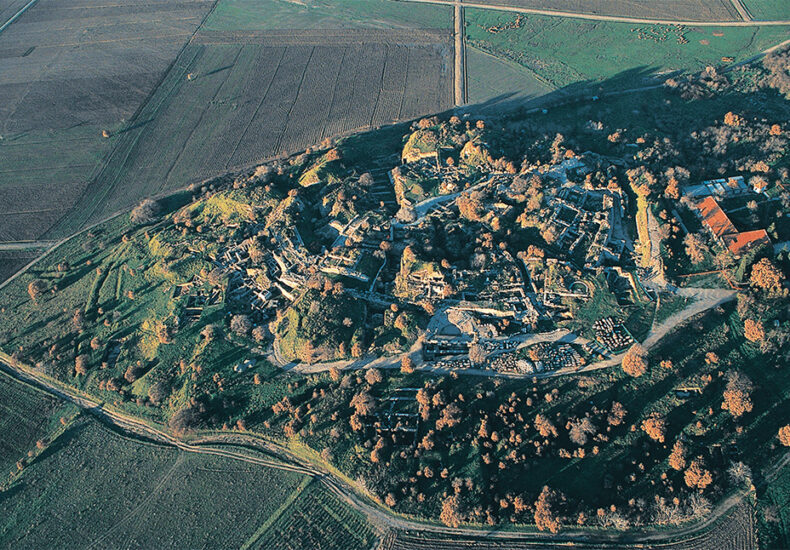
In Troy, Wine Was a Drink for the Common People, Not Just the Elite
In the Ancient City of Troy, where legends and realities intertwine through thousands of years of history, the belief that wine was a luxury drink exclusive to the elite has been radically changed by a scientific study. A collaborative effort by archaeologists from the Universities of Tübingen, Bonn, and Jena has proven that wine was
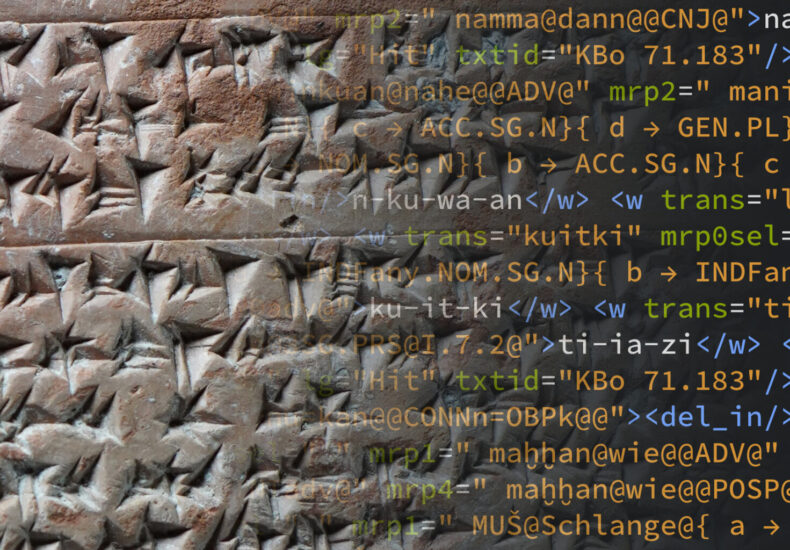
Hittite Empire’s Mysterious Tablets Reborn in the Digital World: TLHdig 0.2 Released
Thousands of cuneiform tablets discovered in Boğazköy-Hattuşa, a UNESCO World Heritage Site, belonging to the Hittite Empire that ruled from around 1650-1200 BC, have been made accessible to researchers and students through a digital tool. This innovative platform, called Thesaurus Linguarum Hethaeorum Digitalis (TLHdig), provides online access to sources in Hittite and other Anatolian languages,
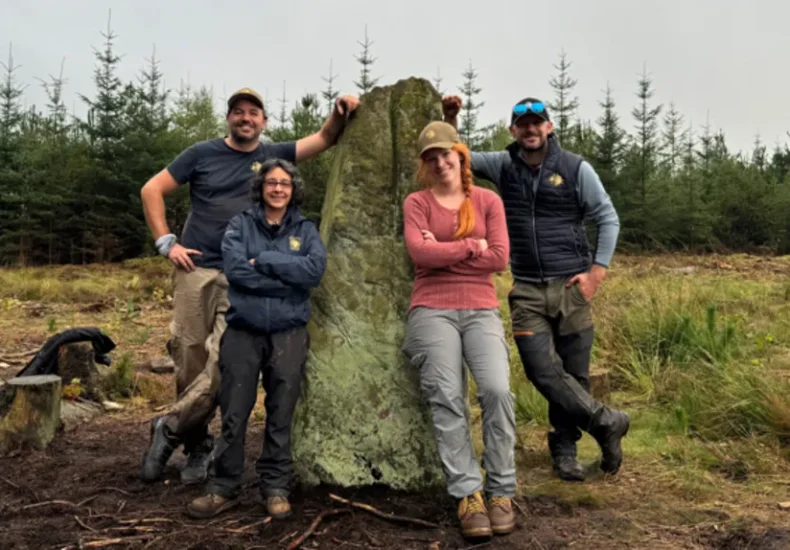
Archaeologists Uncover 3,700-Year-Old Ceremonial Stone Circle in England
In Farley Wood forest near Matlock in Derbyshire, England, archaeologists have unearthed a mysterious ceremonial stone circle dating back 3,700 years to the Bronze Age. What was initially thought to be a solitary standing stone, the Farley Moor standing stone, has been discovered to be part of a much larger ceremonial site. Excavations conducted
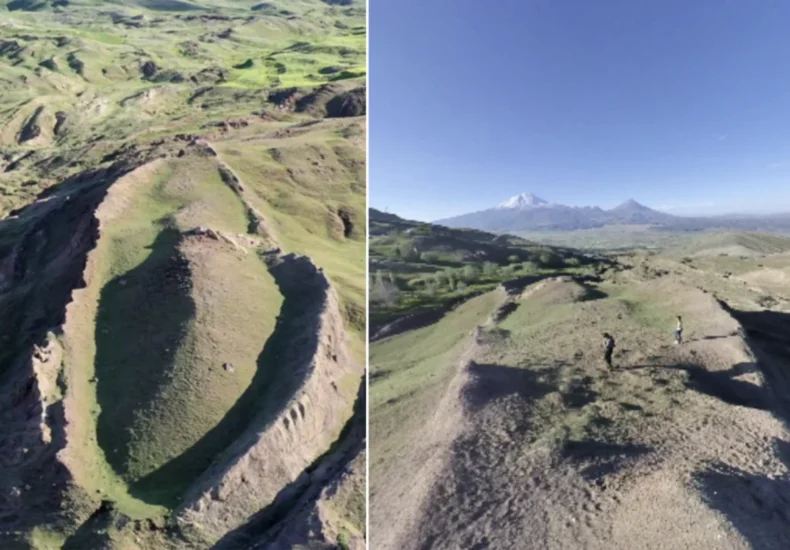
Is This Noah’s Ark? Exciting Discovery in Türkiye Sparks Debate
A boat-shaped mound in the Durupinar Formation near Mount Ararat in Türkiye has ignited interest among experts who believe it may be the fossilized remains of Noah’s Ark. This formation, studied by an international research team since 2021, is thought to have been submerged during a catastrophic flood approximately 5,000 years ago. Durupinar Formation: Clues
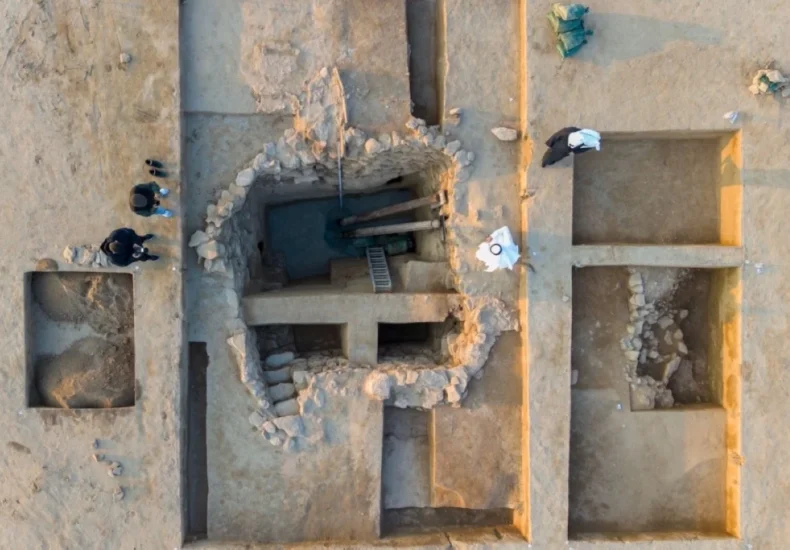
Historical Discovery on Failaka Island: 1400-Year-Old Water Well and Precious Stones Unearthed
Failaka Island has once again proven its significance on the stage of history with recent archaeological excavations. The discovery announced by the Kuwait National Council for Culture, Arts, and Letters (NCCAL) includes a large water well found in the courtyard of a magnificent house dating back to the 7th and 8th centuries AD in the
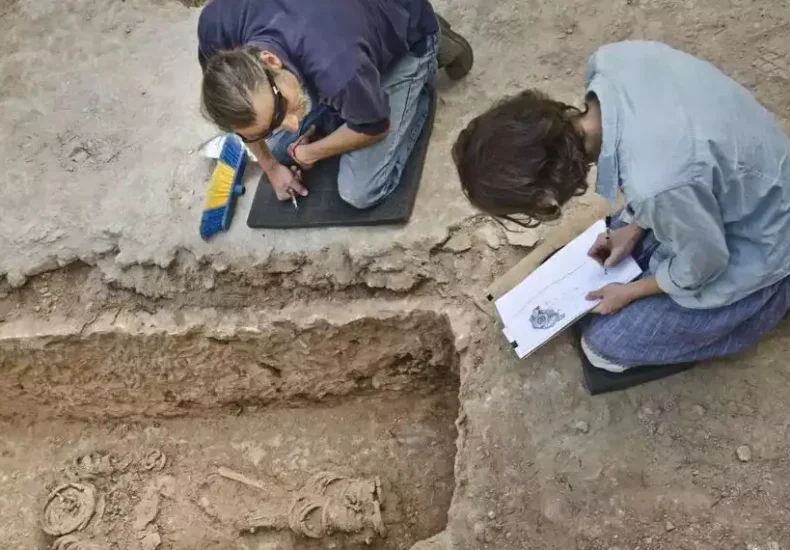
First Archaeological Evidence of Extreme Asceticism Discovered in Jerusalem
In an ancient Byzantine monastery near Jerusalem, the remains of a woman buried with 30 iron rings attached to her body have been found. This discovery represents the first archaeological evidence of extreme asceticism among female monks, a phenomenon previously known only from historical texts. Researchers from the Israel Antiquities Authority and the Weizmann Institute
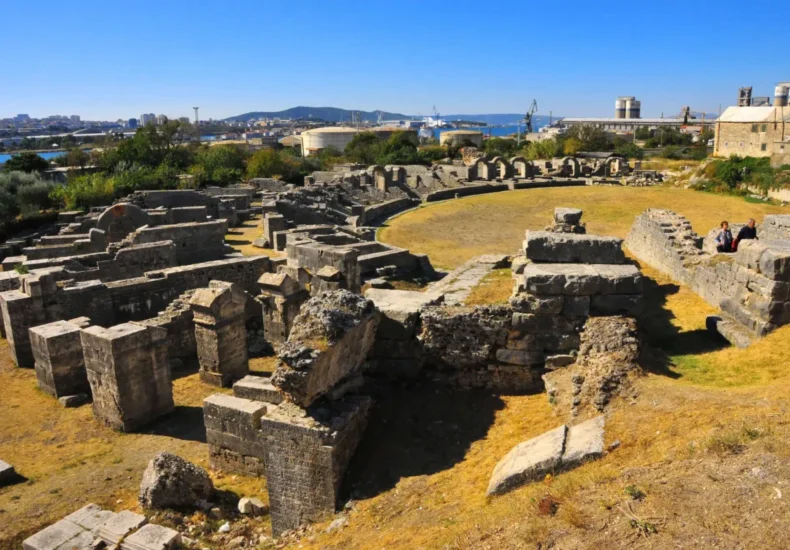
Tomb Discovered in Croatia Reveals Touching Story of Twins in Ancient Rome
Recent archaeological excavations in Trogir (ancient Tragurium), Croatia, have revealed a remarkable and heartbreaking discovery dating back to the 1st and 2nd centuries AD: the remains of twin babies buried side by side. This significant find, uncovered at the Dragulin cemetery near the ancient city of Tragurium, not only highlights the burial practices of the

Unique Roman Britain Cemetery: Jewelry Buried with Child and Stone Sarcophagi
The Roman cemetery, accidentally discovered during the A47 road expansion works near Wansford, close to Peterborough, has astonished archaeologists. The excavation team states that this cemetery is “unique” because the variety of different burial types and grave goods is quite remarkable. In particular, the jewelry buried with a young child and a solid stone sarcophagus

Karnak Temples Yield Treasures: Exquisite Jewelry and Amulets from Egypt’s 26th Dynasty
A stunning collection of jewelry and amulets dating back to the early 26th Dynasty (664–525 B.C.) has been unearthed at the Karnak temples in Luxor, Egypt. This remarkable discovery, announced by the Egyptian Ministry of Tourism and Antiquities, offers a captivating glimpse into the artistry and religious practices of ancient Egypt. A Treasure Trove Unveiled:

